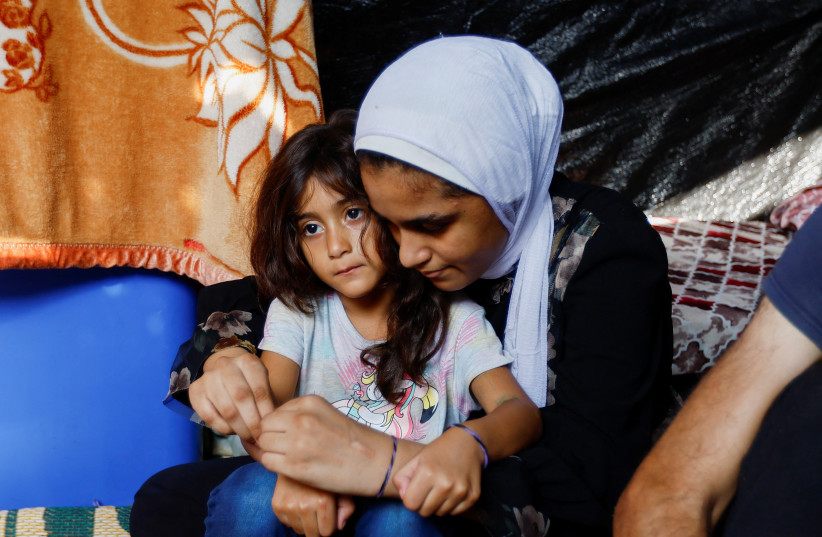With so many bodies, Palestinians in Gaza are burying the unidentified dead in mass graves, with a number instead of a name, residents say. Now some families are using bracelets in the hope of finding their loved ones should they be killed.
The El-Daba family has tried to reduce the risk of being struck down during the heaviest-ever Israeli bombardment of Gaza. Israel launched the air strikes after the Hamas terrorist organization attacked Israeli towns on Oct. 7 in a rampage that killed 1,400 people and hostages were taken.
Ali El-Daba, 40, said he had seen bodies ripped apart by the IDF's retaliatory bombing and were unrecognizable.
He said he decided to divide his family to prevent them from all dying in a single strike. He said his wife Lina, 42, kept two of their sons and two daughters in Gaza City in the north and he moved to Khan Younis in the south with three other children.
El-Daba said he was preparing for the worst. He bought blue string bracelets for his family members and tied them around both wrists. "If something happens," he said, "this way I will recognize them."

Other Palestinian families were also buying or making bracelets for their children or writing their names on their arms.
Mass burials
Mass burials have been authorized by local Muslim clerics. Before burial, medics keep pictures and blood samples of the dead and give them numbers.
The IDF has told people to leave the north of the Gaza Strip, one of the most densely-populated places in the world, and head south because it is safer. But air strikes have hit across the Hamas-ruled enclave.
An Israeli military spokesperson said: "The IDF has been encouraging residents of the northern Gaza Strip to move southward and not to stay in the vicinity of Hamas terror targets within Gaza City."
"But, ultimately, Hamas has entrenched itself among the civilian population throughout the Gaza Strip. So wherever a Hamas target arises, the IDF will strike at it in order to thwart the terrorist capabilities of the group, while taking feasible precautions to mitigate the harm to uninvolved civilians."
